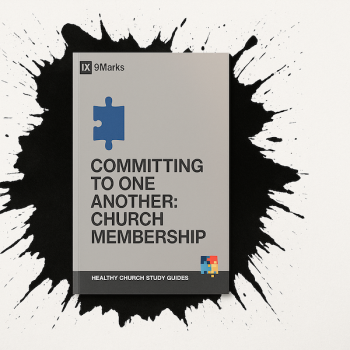My children, when you were little, we used sometimes to go for walks in our pine woods. In the open fields, you would run along by yourselves. But you used instinctively to give me your hands as we entered those woods, where it was darker, lonelier, and in the stillness our voices sounded loud and frightening. In this book I am again giving you my hands. I am leading you, not through cool pine woods, but up and up a narrow defile between the bare and steep rocks from which in shadow things uncoil and slither away. It will be dark. But, in the end, if I have led you aright, you will make out three crosses, from two of which hang thieves. I will have brought you to Golgotha—the place of skulls. This is the meaning of the journey. Before you understand, I may not be there, my hands may have slipped from yours. It will not matter. For when you understand what you see, you will no longer be children. ~ Whittaker Chambers, Witness
We are living in dark days. The prince of this world is alive and well, and he has no shortage of forces eager to do his bidding. For those of us who love all things bright and beautiful, all things good and true, these are terrifying times.
Some of you might object to my use of the words "love" and "terrifying" in the same sentence. I know. I've heard the same sermons, speeches, and lectures that you have. The ones telling us that we who love deeply need not fear anything, or anyone. The ones telling us that we're small-minded and dim-witted to think that we are on the losing side of history. They would like to inform us that they've read the back of the book—and we win! Or have we forgotten that we are "future kings and queens of the universe"? We have? Dear me, that's embarrassing. But what a relief now that we've been reminded.
You and I heard more than our share of this well-meant foolish talk before, during, and after election time last year. I say "well-meant," because, in a sense, it is. Well-meant, and yet full of small, deliberate, bee-sting stabs. A snicker for the soccer mom who hugged her children a little tighter as she prayed earnestly that Obama would not be re-elected. A disdainfully raised eyebrow for the action groups keeping her and the rest of us informed about the enemy's battle plans, because language like "enemy" and "battle plans" is so simplistic, so pathetically lacking in nuance. An ever-so-subtle implication that those of us who weep daily for the unborn would secretly be disappointed if our commander-in-chief were miraculously converted, thereby "giving away an issue" and leaving our petty craving for power unsatisfied (because that's what we really want, though we needed the enlightened ones to tell us that).
From the way they talked, you would think we were discussing who was to be the next county dog-catcher, for all the import it had.
"But wait!" you interrupt. "Surely you're missing the point. After all, all this is trivial... on an eternal scale."
But is it now? Is it trivial? Even on an eternal scale, is it trivial?
Begin with a simple, small-scale example: Your child loses a dearly loved pet animal. What's the right response? Hint: "Honey, it's just a puppy. Sheesh. Get a little perspective" is not going to cut it. You comfort the child. You grieve with him. Together, you share the heavy, aching sense that something, however small in the grand scheme of things, has been lost.
How much more seriously should we take the loss of a human life? The loss of a child's innocence? When a baby is murdered in the womb, something has been lost. When an elderly woman dies of thirst because she has been deemed a burden on society, something has been lost. When a person in a coma is left to die because "science" has decided he's no longer a human being with rights, something has been lost. When a child is exposed through school or television to horrors a child his age should never know of, something has been lost.
And worst of all, when a soul is led away from God, something has been irrevocably, eternally lost. Perhaps you would brush aside every example in my last paragraph as examples of what "those who destroy the body" can do. Still, nothing to fear, you say. But I ask you, what of those who can destroy the soul? What of those who teach "ethics" classes and write articles designed to help people rationalize moral monstrosities? What of those who encourage children to indulge in the most perverted forms of sexual immorality, telling them over and over that it's a good thing, it's a natural thing, and "it gets better"? What of those who prey upon the soft-hearted and weak-minded with candy-coated lies? What of those who heap scorn and ridicule upon Christianity and upon loving Christian parents, hoping the next generation will listen and follow?
I fear such people. I fear them because they are a threat to the souls of men, nations, and children. They are a threat to the things I love. It does not betray, as I recently saw somebody put it, a "lack of confidence in our gospel" to express such "outrage." It is altogether right that we should be "outraged," as God Himself is "outraged" by those who would lead even one of his little ones astray.




